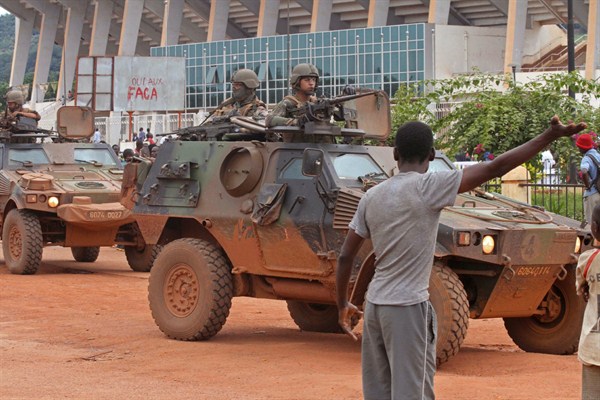A new date of Dec. 13 has been set for national elections in the Central African Republic, after the vote was postponed again last month due to renewed violence. A constitutional referendum, which was also scheduled for October, will now be held on Dec. 6. However, there are many who fear the electoral process is being rushed.
Legislative and presidential elections were originally scheduled to take place in February 2015, but were repeatedly delayed due to security concerns and the failure to register all voters. Another outbreak of deadly violence in the capital, Bangui, in late September—in which at least 77 people were killed, 300 injured and 40,000 people displaced—forced the latest delay last month.
The mandate for CAR’s political transition, which established a temporary government after the overthrow of President Francois Bozize by the Seleka rebel group in 2013, is due to expire on Dec. 31. The international community, in particular France, has been pushing for the country to hold elections as soon as possible in order to bring that transition to an end.

